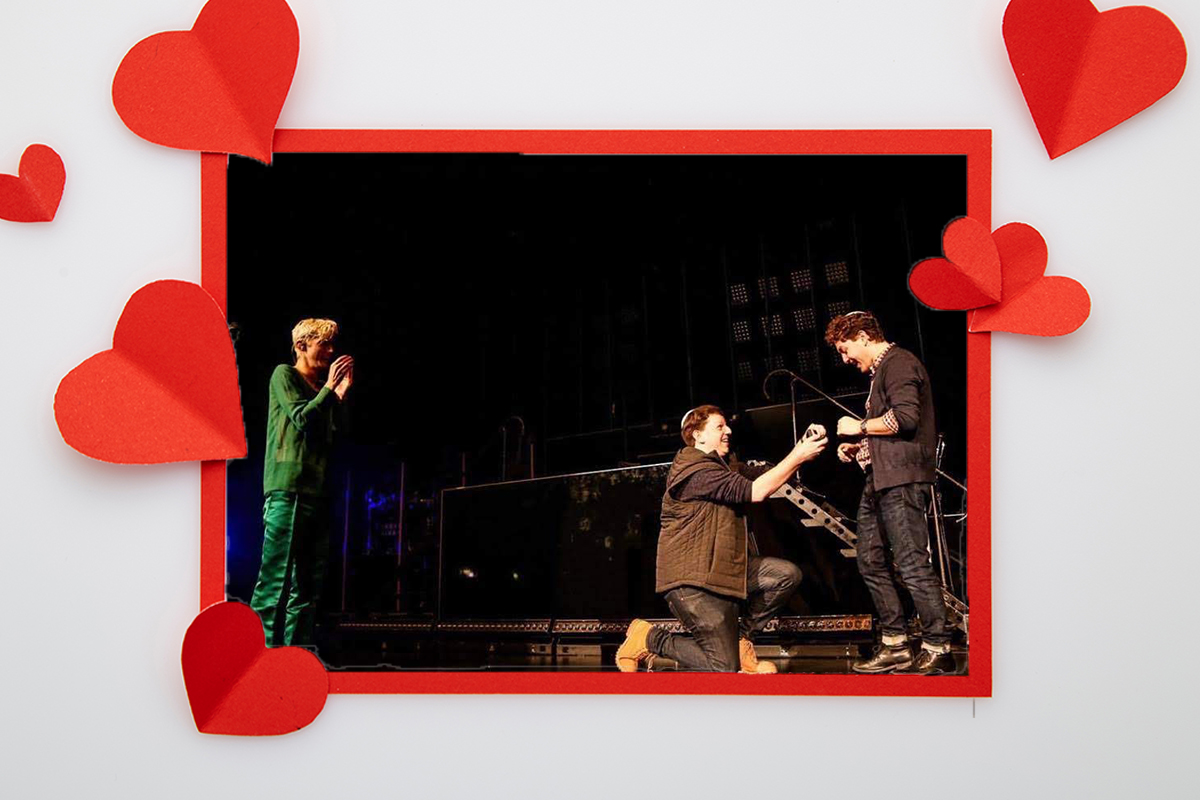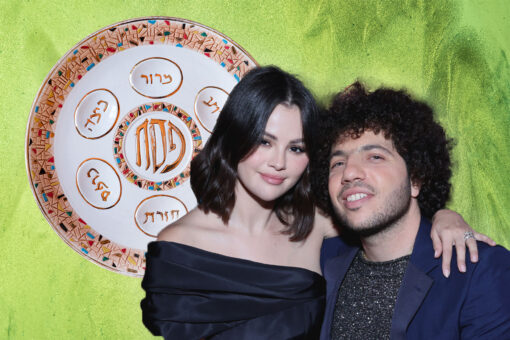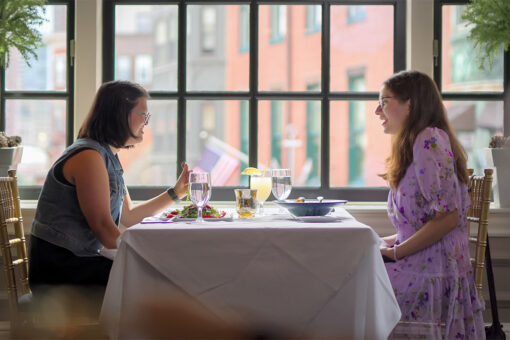By the time Judah was called up on stage, I should have figured out what was coming, but I didn’t expect my wildest dreams to come true on an unassuming Tuesday night in October. We went to see Troye Sivan, the gay, Jewish, Australian pop star, perform at Radio City Music Hall in New York City. At some point, Troye called up a “random” fan to come on stage with him, and it “just so happened” to be Judah, my then boyfriend. It was obviously not random; Judah was called up in order to propose to me on stage at a sold-out show in front of Troye Sivan.
I first met Troye on YouTube. Before becoming an LA-based, high-life living, (Jewish!) model-dating star, Troye Sivan was a quirky YouTuber living with his Orthodox Jewish family in Perth, Australia, a city I had never heard of before. I was sitting in my room one night in the summer of 2015, the summer of my coming out, looking up any coming out videos I could find, when Troye’s popped up. I stopped in my tracks and stayed up the rest of the night watching all of his videos and consuming anything I could find on Troye.
The coming-out-video has a script; it is a defined genre. You look into the camera, start crying, say, “I’m gay,” and then tell some heartbreaking story of hiding, coming out, acceptance, and rejection. Troye’s video touched me because it was different. Troye was upbeat, funny, and happy. His video wasn’t him confessing to us that he is gay; it was him telling his story, a story he was proud of. He gave me hope, not fear. Not to mention the fact that we both came from similar Orthodox backgrounds.
Troye posters soon adorned my walls. I memorized every Troye song and video, set up a Google news alert and Twitter notifications so I would never miss anything Troye-related. His picture was my phone background. I painted my nails because he painted his nails and styled my hair like his. He became my hero.
I always wondered what I would say if I were to ever meet Troye. But in that moment at Radio City, after I joined my boyfriend on stage and Troye asked me, “How are you doing?” all I could muster up was, “Great!” It was a lot to take in at once. To my right was Troye, my hero, the man who saved me from the depths of the closet. To my left was Judah, my future, the man I love more than anything and who I wanted to build a home with.

The proposal was a magical moment. Thousands of fans went wild. One person tweeted “TWO GAY JEWS JUST GOT ENGAGED AT A TROYE SIVAN CONCERT. TRUMP IS DEFEATED.” What could be more magical than getting engaged, inspiring people, meeting my hero, and defeating Trump all in one night?
But what happened following that magical night would change me forever in more ways than I could have ever expected.
My coming out back in 2015 was complicated by the fact that I was then a student in an Orthodox rabbinical school which had never accepted an openly gay student before. But thankfully, I had a script, literally — when I came out to my classmates in rabbinical school, I actually copied the words of Troye’s coming out video. Like Troye, I wanted to project hope and strength, not pity and weakness.
I came out to my school administration in early 2016, and I was initially told that I could no longer be ordained. But I was given one year to make my case, after which the question would be revisited. I fought for my place and eventually convinced them that a gay man can be a rabbi. With the now-former president of the school as my biggest ally, I brought the Board of Directors, Rosh Yeshiva(dean), and staff along. The situation was tenuous, but all seemed well.
That is, until a new president, one who seemed to have an explicitly different agenda than that of the previous administration, was appointed.
The new president called me the morning after my engagement and told me it was best that I didn’t come in to yeshiva anymore. Once I persisted that I did not want to miss shiur (class), he made it clear that my coming back to yeshiva was on the condition that I email the whole student body and make it clear that the rule of the school is that they are not to wish me a “mazel tov” in public or even in the private confines of our Beit Midrash (study hall). Thankfully some classmates of mine secretly danced with me in an upstairs classroom, but I did not get the full school-wide recognition that a straight classmate of mine who got engaged literally later that same week received. The whole school publicly and joyously celebrated for him as if I was not even in the room.
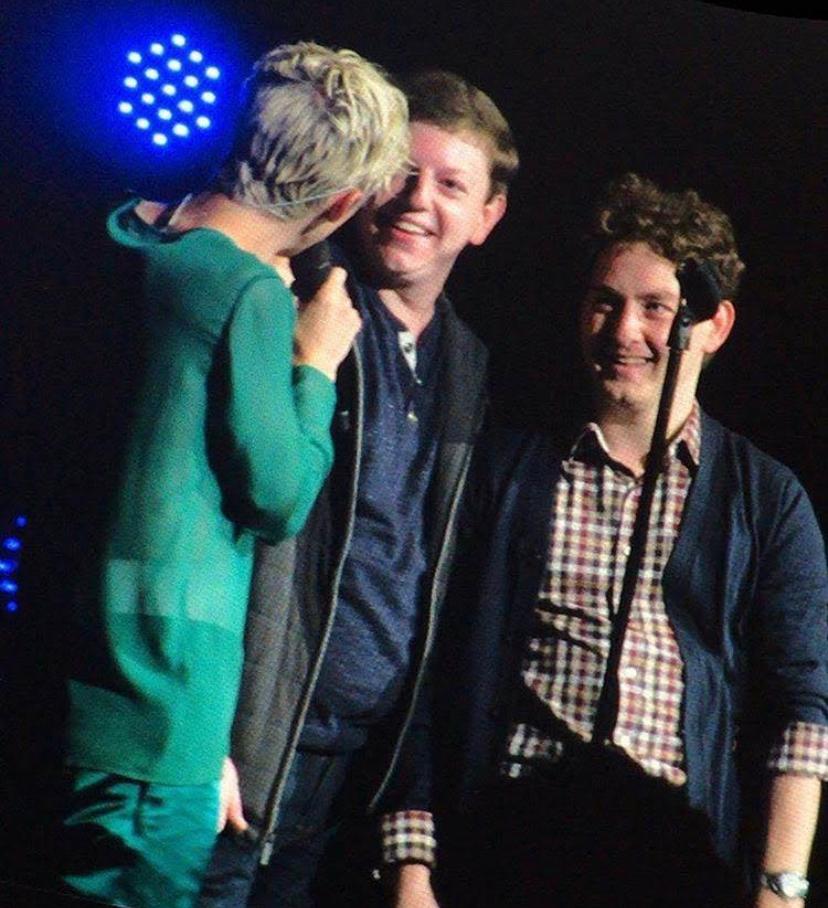
Furthermore, I had to make sure that there was no mention of my engagement on social media. That was pretty hard, considering I was literally plastered all over the news, with every outlet from Billboard to GQ (and yes, Alma) covering the engagement at Troye’s concert. I had to pretend nothing was going on. Friends would tag me in articles saying how inspiring I was and I actually called them asking for them to delete their posts. Not only was this humiliating and dehumanizing; it was wrong.
Why was I apologizing for my own engagement? Was rabbinical school really still worth it? Why did I go through all that trouble of coming out and fighting for my place if being out meant hiding my life? Yet I had worked so hard — both academically and personally — and didn’t want to give it all up in my final year, so I remained in school while feeling like I had betrayed both Troye and Judah for the sake of a degree.
Six months after my engagement, and only two months before graduation when it seemed everything would be okay, the new president abruptly told me that I would not receive ordination. The line became that my getting engaged — especially in a public manner — had gone too far, though I had been given no explicit guidelines around such matters.
If you would ask me why I was not ordained (a question to which there is no clear answer), I would say that it is because he did not know me. That this new president was not there for all the heartwrenching conversations of my coming out years earlier. He did not know my resilience and my brokenness, the story of my pain and the yearning for a better future.
Rabbinic ordination is not just a degree; it is an identity. In many ways, I feel like being a rabbi is as much a part of who I am as my queer identity. And at that moment, as I felt lost in myself as both a gay man and a future rabbi, it felt like I had betrayed both of those identities.
As the Jewish media exploded with this story, I fell into the deepest darkness I have ever experienced. So many people who I believed to be allies suddenly disappeared, fearful of professional backlash. Rabbis of communities who did not know me or my story took to Facebook to write screeds about how greedy I was, thinking that I could be gay and get engaged, while insisting that “their rebbe” is “the foremost advocate of LGBT rights” (a direct quote from my former school) and could do no wrong. Podcasters debated talking points sent out by my school without bothering to fact-check them, as I was silenced due to my own professional considerations, being in the midst of interviewing for jobs at the time. For many months I could not get a lick of sleep.
My mistake, I believe now, happened all the way back in October. I wish I had honored myself, Judah, and Troye, and just walked away when they told me that my engagement, something that was the definition of a Kiddush Hashem, an honor for God, inspiring literally thousands of Jewish queer teens to be proud of their Judaism, was something to hide. I wish I would have seen the writing on the wall, as the Biblical Daniel, my namesake, so famously did. Years of internalized homophobia had taught me that I am not deserving of full recognition, and I had come to believe it.
Thank God that fateful night Troye and Judah teamed up to save me from myself. Because how could I be either a partner or a rabbi if I didn’t even have a basic respect for myself? Troye and Judah brought me up onto that stage and told me that I am deserving and that it is time to start loving and respecting myself wholeheartedly, as they both do. They showed me that my identity is not a source of shame and that I deserve to be on the biggest stage in New York City holding hands with the man I love and will build a family with. If I can’t do that, how can I expect to be a leader?
When Troye called me onto the stage at Radio City, he loudly proclaimed, “And he’s also wearing a little kippah on his head! A nice Jewish boy!” The crowd went wild. I can only imagine how many queer Jewish teens were watching and crying as a man who started off his music career wearing a kippah facilitated two kippah-clad (as GQ described us) men getting engaged to build a Jewish home. Something I loved most is that, probably inadvertently, Troye used the term “kippah,” a term generally only known by fellow Jews, instead of the more popular “yarlmulke.” Despite the public forum, in many ways that moment was targeted right at the people who needed to see it most.
Together, Troye and Judah created not just an engaged man that night, but also a rabbi. Because I can’t think of anything more rabbinic than showing all those Jewish kids that it’s okay to be proudly gay and all those gay kids that it’s okay to be proudly Jewish.
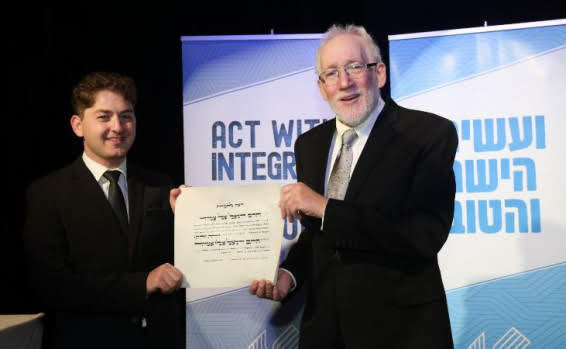
While being abruptly expelled from my rabbinical school after fighting so hard to earn my spot there was traumatic, I was eventually ordained as a rabbi by a different rabbinical program, one that embraced me with arms wide open as my full self. And there was a silver lining in all of this, because now I feel like I actually earned my ordination. Now I am ready to be both a husband a rabbi.
Images courtesy of Rabbi Daniel Atwood
